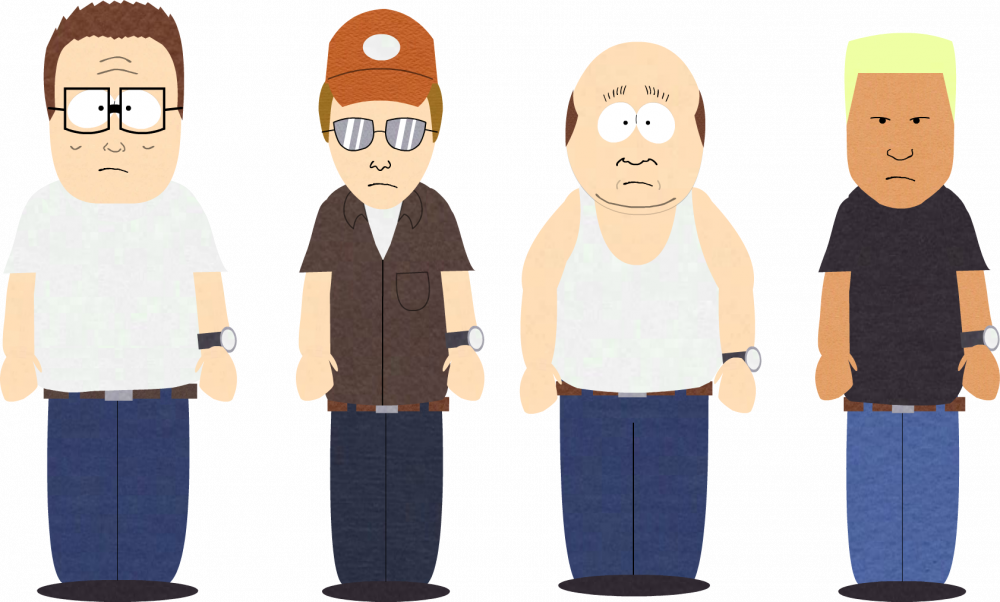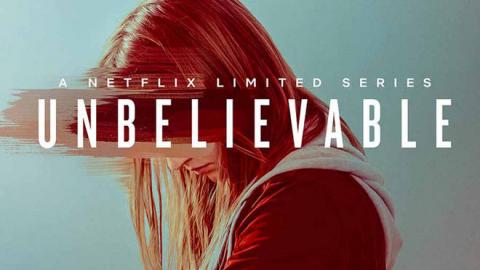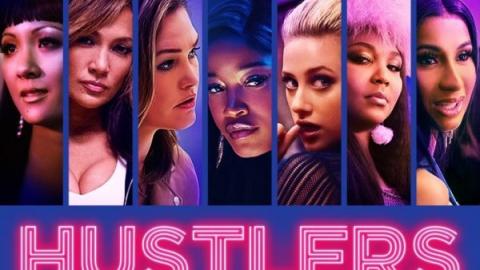King of Nothing: A Reaction to The Atlantic Article About "King of the Hill"
Share with friends

Was King of the Hill really the last bipartisan sitcom?
The Atlantic recently called the 1997-2010 animated series, King of the Hill, the last bipartisan sitcom. The article claims that the show "managed to unite both liberal and conservative viewers by emphasizing its characters’ humanity in a changing world," in a way no show has done since. But is this really the case? In a television landscape saturated with carnivalesque satire, there must be a more recent show that is equally critical of both ends of the political spectrum, and thus appeals to conservative and liberal audiences alike. Right?
Indeed there is. South Park debuted on Comedy Central in 1997 and quickly became one of cable’s most-viewed and most controversial shows. Its jokes are considered vulgar and meaningless by people on both ends of the political spectrum, such as its blasphemous depiction of the Virgin Mary or its offensive depiction of homosexuality. The show’s absurdist flavor allows it to get away with mocking strong political stances on both sides of the spectrum.

The Atlantic article in question [LINK]
Not only has the show been reviled by people of all ideologies, but both the right and left ends of the political spectrum have claimed the show as their own. There are both “South Park Conservatives,” and “South Park Liberals.” In reality, it is “a futile exercise” to try to pin down the politics of South Park because the show is genuinely bipartisan. As Norman Lear once said, “[the show’s creators] are equal opportunity condemners.” As an ambivalent offender, South Park is the best example of a bipartisan show that exists in recent memory - and it's still on TV.
One doesn’t need to look very far to see the dual appeal of South Park. Let’s examine, for example, the overarching tropes present in the show’s most recent season. Season 19 was particularly critical of PC culture, going so far as to abbreviate it “pussy crushing.” The season is also critical of Caitlyn Jenner’s public persona as a hero; Jenner hits a pedestrian with her car nearly every time she’s on screen. One could argue that the show’s unapologetic and unfavorable depiction of Jenner and PC culture’s abrasiveness is an open attack on liberal institutions. The show’s previous representation of “dirty hippies,” Al Gore as obsessed with the fictional “man-bear-pig,” and Hilary Clinton as having a “snuke” in her “snizz” would surely appeal to Republican viewers.
But Season 19 is also incredibly critical of Donald Trump and his supporters, as is shown by Mr. Garrison’s Trump-parody. As a Trump-like figure, Garrison’s plan to deal with his enemies is to “fuck em all to death” and the citizens of South Park are portrayed as back-ass-wards rednecks for producing Garrison. The season is particularly critical of the police, showing Officer Barbrady accidentally shooting minority children on multiple occasions. It is not a stretch to read these tropes as being critical of the far right and its penchant for racial profiling. South Park has an illustrious history of liberal tropes including Randy's female identity (Lorde) being in no way based on sex, lampooning the BP oil spill, and using Cartman as the main vocal point for conservative values.
Since both of the previously presented readings are plausible, where do the politics of South Park actually lie on the political spectrum? This question has no right answer; a viewer has a strong tendency to read South Park in line with what they already believe. The show manages to be so bipartisan in nature that it creates readings strongly in opposition to each other. The show’s politics are centrist, but a viewer’s political affiliation leads to the show’s cross-political appeal.
Of course, one of The Atlantic’s main points is that King of the Hill represents “a world in which cultural and political opposites could actually find ways to get along.” King of the Hill often allows opposites to coexist through conflict between Hank Hill and the world in which he lives. Although it does so in deeply ironic ways, South Park also manages to portray opposites coexisting. Mr. Garrison, for example, is gay, (twice) transsexual, and incredibly conservative. The show satirizes stunted relations between cultural and political opposites by portraying a gay character who fights against gay marriage.
The central affinal relationships in South Park further show cultural and political opposites getting along. Cartman is deeply conservative and anti-semitic, but one of his best friends is Jewish and liberal. Of course, Cartman is often spewing racial slurs and referring to Kyle in incredibly negative ways, but remains friends with Kyle throughout the show.
Perhaps the only argument that can be levied towards South Park is that it is deeply ironic in tone. By satirizing everyone, Trey Parker and Matt Stone have created a work that is nearly nihilistic at times; this is a notable contrast to the intensely earnest tone of King of the Hill. Of course, not every South Park episode is biting satire – and, considering the show is produced in a format similar to SNL, it would probably be a stretch to expect every episode to be a biting critique of the world in which we live.
Ultimately, The Atlantic’s claims that King of the Hill was the last bipartisan TV comedy and that the episodic was ahead of its time is an unsubstantiated generalization. And a survey referenced in the article, which shows bipartisan television preferences, was used in a misleading way – the article implies that there is little overlap between shows enjoyed by liberals and conservatives. While there are notable differences based on political affiliations, it is ridiculous to say there’s nothing on TV that appeals to both parties.
A 2014 update of the survey mentioned shows that New Girl is very popular among both political parties. And the 2011 study referenced by The Atlantic indicates that The Middle and Modern Family both have strong bipartisan appeal. As such, King of the Hill is the King of Nothing – it is not the last bipartisan TV show, and neither is South Park. In reality, they both exist as part of the larger TV landscape, one which is always evolving, and which attempts to create something that can appeal to everyone.




